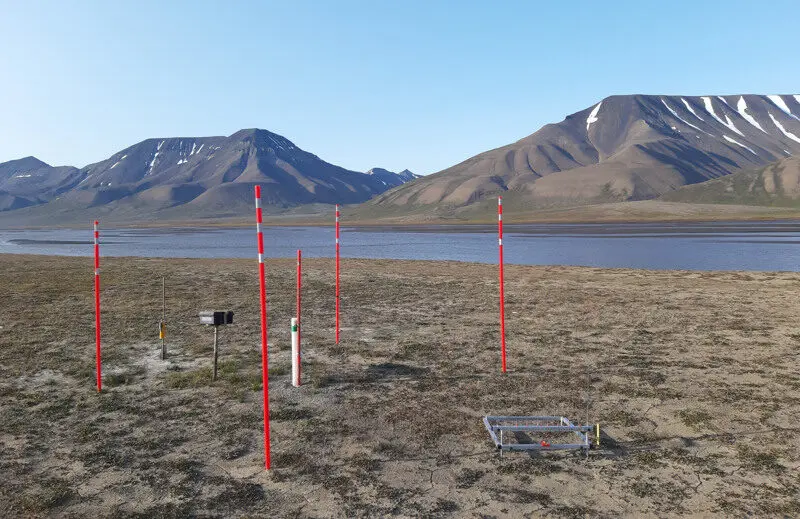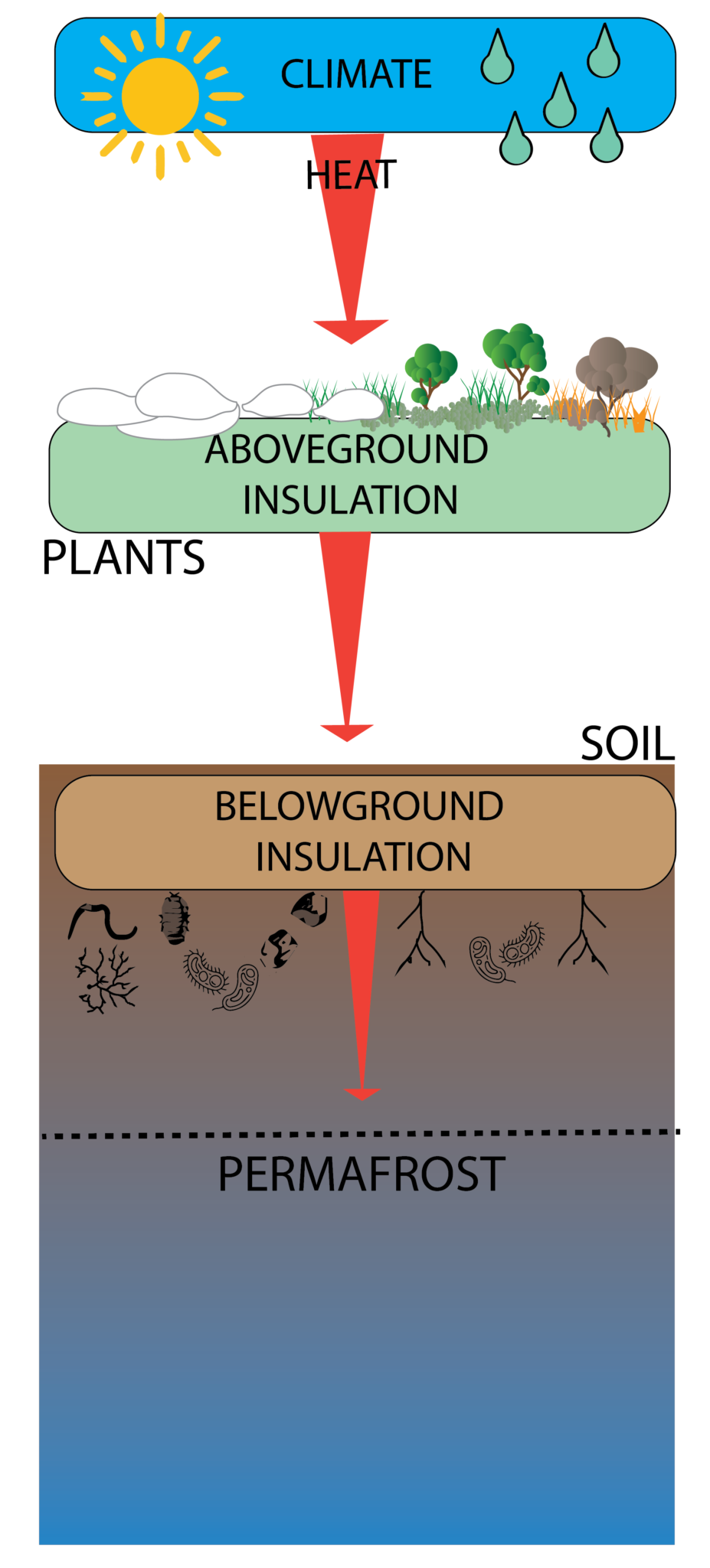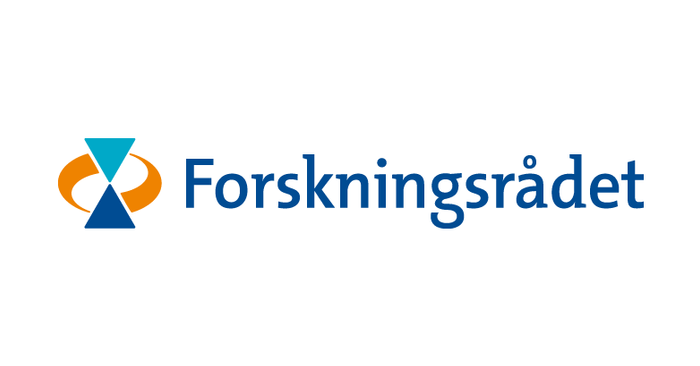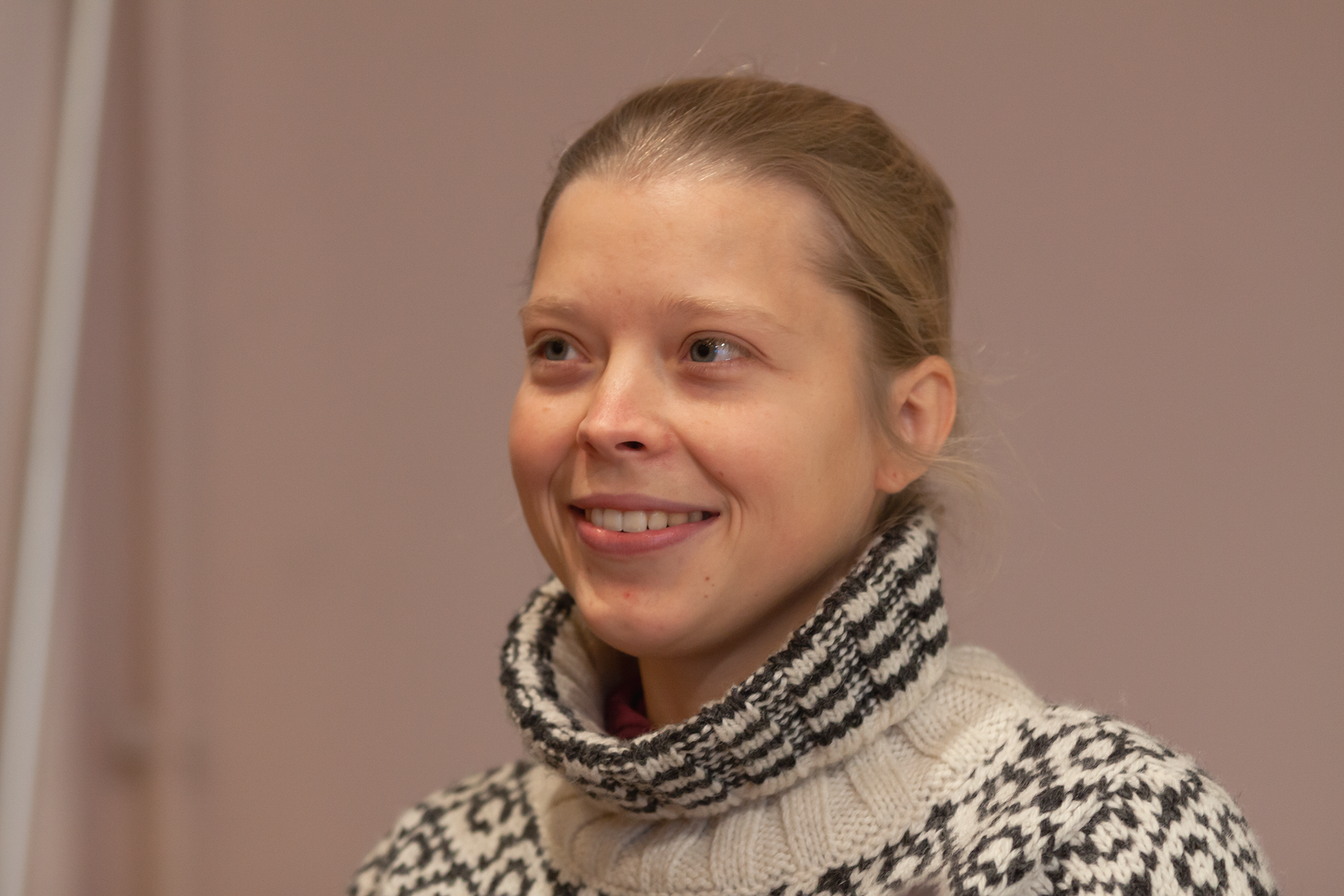INSULATE
INSULATE aims to study the effects of climate change, both biotic and abiotic factors on permafrost insulation on a year-round basis in the Arctic.
active

Boreholes and vegetation recording at Old Aurora Station. Photo: Simone I. Lang
How above- and belowground biotic traits shape insulation of permafrost in a warming Arctic
About the project
The Arctic is underlain by vast areas of permafrost, holding tremendous amounts of greenhouse gases that may be released into the atmosphere under a warming climate. Driven by rising temperatures, the Arctic is greening, with shrubs moving northwards and strongly increasing in cover. While we know that plants can insulate the frozen ground to a certain extent, studies have concentrated on aboveground plant parts , ignoring the belowground root system and microbial world. Further, most of our knowledge is based on the Low Arctic, while drivers between Low- and high Arctic may well be different.
INSULATE aims to study the effects of climate change, both biotic (vegetation, microbiota) and abiotic factors (e.g., temperature) on permafrost insulation on a year-round basis in the High Arctic. We will monitor Arctic biota at existing permafrost monitoring sites in the High Arctic tundra of Svalbard. Later, we will include similar data from Low Arctic sites, so that we can identify potential “tipping points” in the degree to which Arctic biota can protect permafrost in a warmer future Arctic.

Work packages
The project is divided into 4 work packages which make use of existing infrastructures, controlled experiments and existing permafrost and database networks.
WP1. Biotic and abiotic drivers of active layer thickness (lead: Simone I. Lang); study I and II
WP2. Biotic contribution to belowground insulation (lead: Lise Øvreås); study III and IV
WP3. Above- and belowground permafrost insulation across the Arctic (lead: Rúna Magnússon); study V
WP4. Future predictions of insulation by vegetation (lead: Anne Bjorkman); study VI
Staff members:
Partners & Funding :
- Rúna Magnússon – Wageningen University & Research
- Juul Limpens – Wageningen University & Research
- Siri Lie Olsen – NMBU
- Anne Bjorkman – University of Gothenburg
- Anders Michelsen – University of Copenhagen
- Thorsten Klahn – Fraunhofer Institute for Chemical Technology ICT
- Lise Øvreås – University of Bergen
Financed by
Norwegian Research Council



